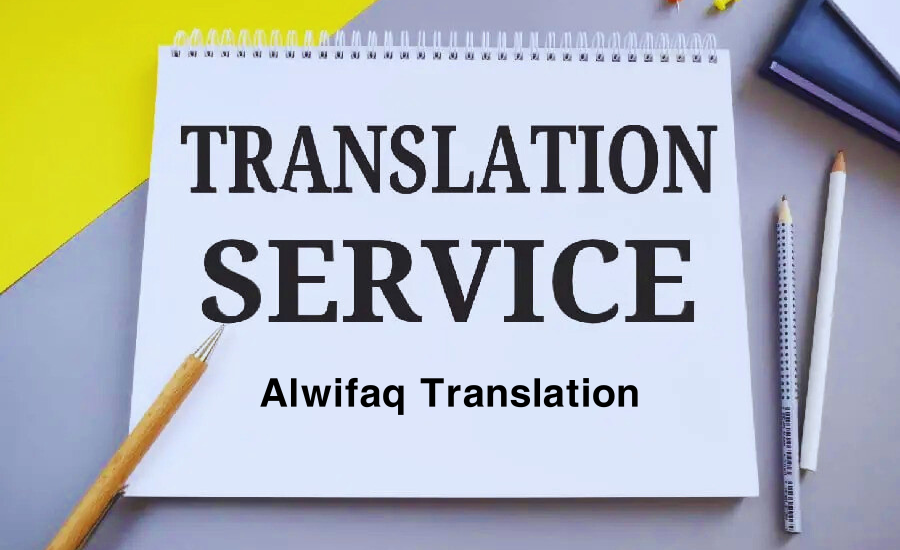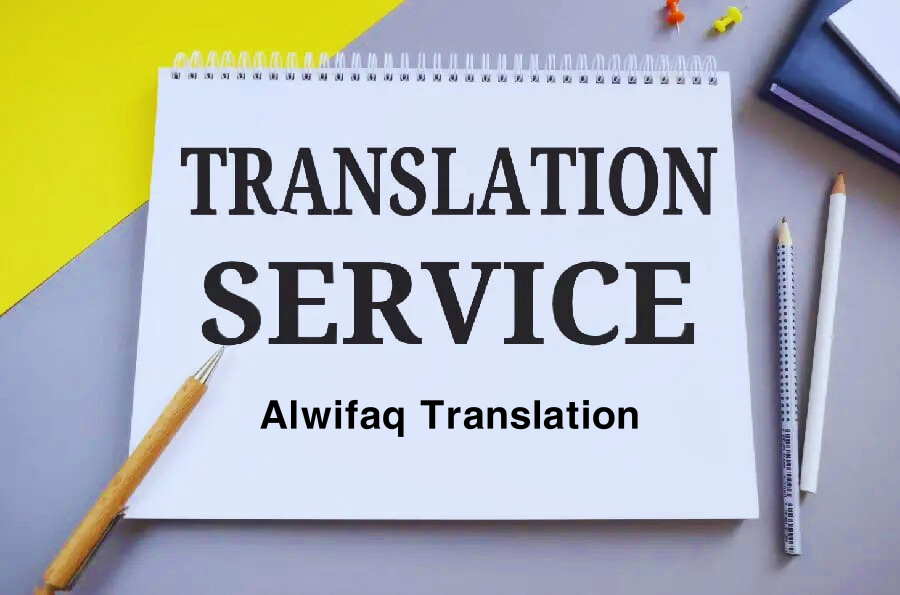- June 25, 2022
- Posted by: design_admin
- Category: Uncategorized

In a globalized world where companies and individuals often interact across borders, effective communication is critical. However, language can be a major barrier. This is where certified interpreters come into play. Certified translators ensure accurate translation of important documents—whether legal, medical, technical, or personal—from one language to another while maintaining the original meaning and cultural nuances of the target language.Accurate professional translation is essential for legal papers, whether they are being translated for business transactions, academic certification, or immigration purposes. This is where certified translators are useful. In addition to guaranteeing translation accuracy, a trained interpreter offers the legitimacy and dependability that are frequently needed in official contexts.
In this article, we will explore what a certified interpreter is, the process of certification, why certification is important, and the types of businesses that rely on certified interpreters.
The role of a Certified Translator
The primary role of a certified translator in Dubai is to translate documents, ensuring that the original text retains the meaning and intent of the target language but their role extends beyond a simple definition of each word. Certified interpreters must be proficient in the use of cultural terms, idiomatic expressions, and key terminology, especially in the legal, medical, or technical fields.
Certified translators usually work in:
Legal Documents: Contracts, birth certificates, divorce decrees, wills, affidavits, and court documents that require precise interpretation for legal enforcement.
Immigration Documents: Passports, visas, citizenship applications, and immigration-related documents.
Medical Records: Patient records, prescriptions, medical histories, and diagnosis reports.
Technical documentation: Technical reports, software documentation, and product manuals that require specific terminology.
Business Documentation: Contracts, contracts, financial statements, and business materials necessary for international business.
Courts, government agencies, educational institutions, or agencies often require certified translations of these documents before adopting them.
When is a qualified interpreter required?
When hiring a certified interpreter, it’s crucial to consider the following details:
Applications for immigration: Translations of vital records for visas or citizenship applications, including passports, marriage licenses, and birth certificates.
Legal matters: translating documents for use in court, such as affidavits or contracts.
The goal of the study is to translate international academic institutions’ transcripts, certificates, and recommendation letters.
Business practices include interpreting proposals, agreements, and reports pertaining to international collaboration.
Medical Records: For medical or legal exports, make sure that data from clinical trials, prescriptions, and medical histories are accurately interpreted.
The importance of honesty
Testimony adds a degree of trust and certainty to the interpretive process. But why is testimony so important? Let’s explore the main reasons why:
Accuracy and Reliability
Certified interpreters are given higher ratings. Certified Translator ensures that a translator has the skills and knowledge necessary to produce an accurate translation, especially for complex legal or technical documents where the slightest mistake can have serious consequences.
Recognition by government officials
Many government agencies, courts, and organizations in Dubai require translators to certify translations before using them for official purposes.. Certified versions come with a stamp or seal of authenticity, confirming that they are an accurate and authentic reproduction of the original.
Special knowledge
Certified interpreters in Dubai generally specialize in specific areas such as law, medicine, technology, and finance. Knowledge of keywords makes it necessary to translate documents where accuracy is paramount. For example, a misinterpretation of a legal contract can lead to expensive legal disputes.
Cultural sensitivity
In translation, it is important to understand the culture of the target language. Certified translators in Dubai are trained to navigate cultural nuances and ensure the translation is appropriate for the intended audience. This is especially important in legal business documents, where cultural misunderstandings can lead to serious problems.
How to become a certified interpreter
Becoming a certified interpreter requires more than just being bilingual. This includes receiving specific training, passing certification exams, and gaining practical experience. Here is an overview of the event:
Language skills
The first prerequisite is that you have to be extremely fluent in two languages, one being the language you are translating from and the other being the language you are trying to learn. you are translating from). This skill should extend beyond day-to-day conversation. You need to understand complex grammar structures, idioms, and keywords.
Education and Training
Many certified interpreters have degrees in translation, linguistics, or a related field. Depending on the certification body, however, appropriate literacy is not always necessary. What is required is the ability to understand the complexities of both languages and effectively translate documents.
There are translation training programs and courses that provide a solid foundation in translation techniques and basic vocabulary. Some of these programs offer specific training in legal, medical, or technical interpretation.
Evidence Test
Certification is usually obtained by passing an examination administered by an accredited translation agency or government agency. Different countries have their own certification standards and procedures.
In the United States: The American Translators Association (ATA) offers one of the most prestigious certification programs. The ATA test tests how accurately a translator can translate text from one language to another.
In Canada, translators who pass an exam are awarded credentials by the Canadian Council of Translators, Lexicologists and Interpreters (CTTIC).
Professional translators can obtain certification through the Institute of Translation and Interpreting (ITI) in the United Kingdom.
The organization that certifies interpreters in Australia is called the National Council of Interpreters and Interpreters (NAATI).
These tests typically test the interpreter’s ability to translate documents accurately and into the culture of the target language.
Experience
Many certification bodies require some practical experience before certifying applicants. This ensures that the translator gains practical experience in the professional translation of documents.
Companies that rely on certified translators
In many different sectors of the economy, qualified interpreters are essential. Let’s explore some key areas based on their expertise:
Legal field
Precision is important in law. Contracts, court documents, powers of attorney, and other legal documents must be interpreted accurately to ensure that all parties involved fully understand the contents. Often certified definitions are required in legal proceedings, immigration matters, and international trade.
The medical field
Good communication can mean the difference between life and death in the medical field. Certified interpreters ensure accurate interpretation of medical records, patient histories, prescriptions and diagnosis reports. This is important for patients who are relocating or moving to a foreign language.
Government and Immigration
Certified translations are often required for documents such as birth certificates, marriage certificates, passports and visas. These definitions must be accurate to meet legal requirements. Certified interpreters help guide individuals through immigration procedures by providing reliable translation of personal documents.
corporations and the business world
Global companies rely on certified interpreters to handle contracts, financial statements, marketing materials, and other documents needed for international business. Incorrect or mishandled communication in these documents can lead to misunderstandings or loss of funds, so having a certified translator ensures accuracy and clarity
Educational Institutions
Certified translators are often needed in the academic world to translate diplomas, theses, research papers, and other academic documents. These translations may be useful for students applying to foreign universities or for researchers submitting papers for international publication.
How to choose a certified interpreter
When selecting a certified interpreter, take into account the following advice.
Verify that the translator has the appropriate accreditation from an accredited organization by checking for legitimate certification.
Seek expertise: Look for professionals with experience in your field, such as engineering, law, or medicine.
Examine reviews: References and testimonies from clients might reveal information about a translator’s dependability and caliber of work.
Verify turnaround time: Find out if the interpreter can complete the task within the allocated time without sacrificing quality.
Request samples: To gauge the translator’s level of skill, try to look at a sample of their work.
Testimonials and credentials: Ensure that the translator is certified by an accredited party.
Skills: Choose a translator who specializes in the relevant area of your application, whether legal, medical, technical, or business.
Reputations and reviews: Look for reviews, testimonials, and references to evaluate the quality of an interpreter’s work.
Turnaround time: Consider the availability of an interpreter and whether they can meet your deadline.
Cost: Certified versions are generally more expensive due to the unique nature of the project. However, the investment is worth the accuracy and reliability you get.
Conclusion
Certified interpreters play a vital role in clear and accurate communication across languages, especially for legal, medical, and government documents. Their work is important in a world where globalization continues to break down barriers, but language differences remain. Certification ensures that these professionals have the necessary skills and knowledge to accurately interpret complex documents while examining cultural and linguistic nuances. When a certified translator handles the translation of important documents, you can trust and have confidence in getting the job done easily.In an increasingly globalized society, certified interpreters are crucial in bridging linguistic barriers. Their knowledge guarantees professionalism, cultural sensitivity, and proper interpretation of significant materials. Employing a licensed translator necessitates making a commitment in accuracy and dependability, whether for private, academic, or professional reasons. A professional translator is your greatest ally if accuracy is crucial.


